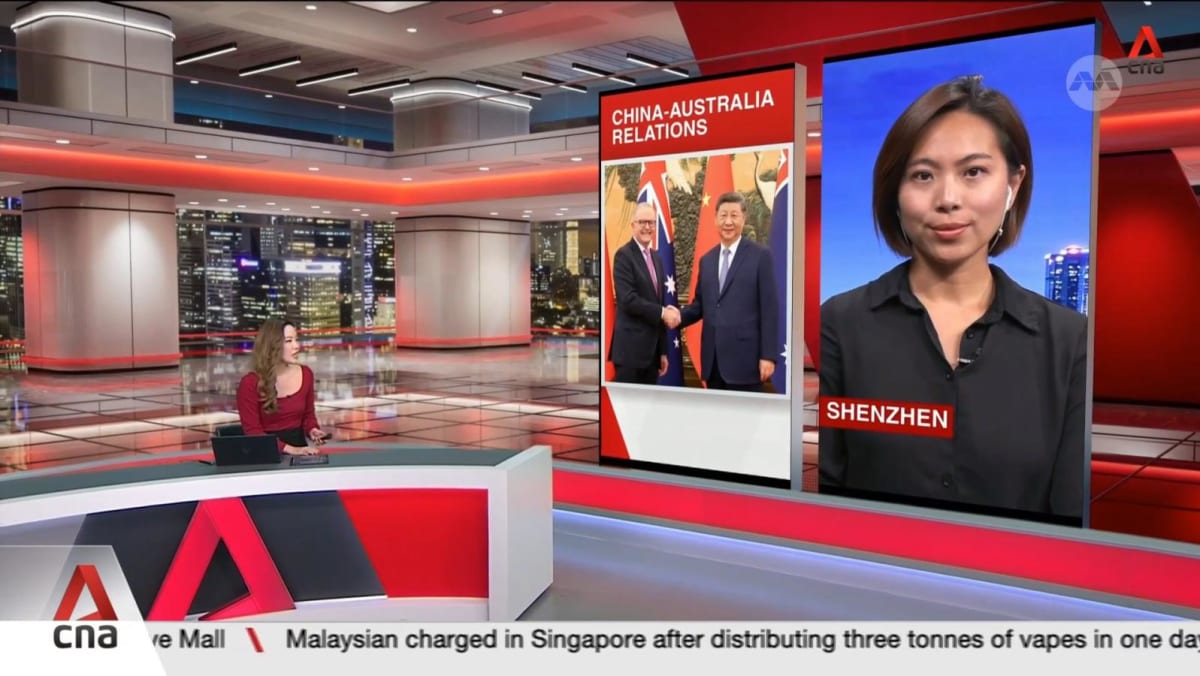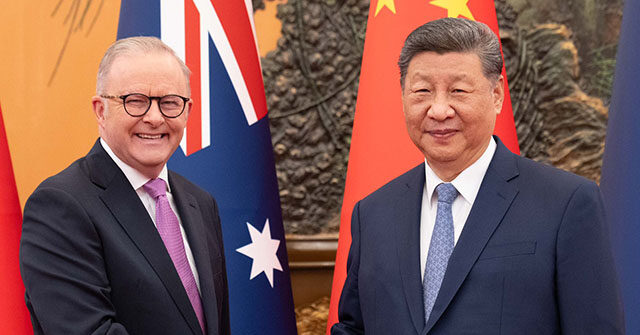Australian Prime Minister Anthony Albanese has embarked on a pivotal six-day diplomatic visit to China, aimed at strengthening economic ties while delicately navigating the choppy geopolitical waters between
Did You Know
The dot over an “i” is called a tittle.
?
AD
the United States and China. Meeting with key leaders, including President Xi Jinping and Premier Li Qiang, Albanese is striving to ensure that Australia’s burgeoning trade relationship with China remains distinct from its commitments to the US, all amidst increasing strategic competition in the Indo-Pacific region.
The meetings have featured discussions about practical cooperation, particularly in sectors such as tourism and green steel production, where both nations see significant potential for mutually beneficial outcomes. However, the backdrop of regional security concerns looms large, especially regarding Taiwan, with US officials pressing for clarity on Australia’s role in any possible conflict. This adds a layer of complexity to Albanese’s mission, as he attempts to balance national interests with diplomatic responsibilities on the global stage.
As the visit unfolds, Albanese faces calls to address sensitive human rights issues, reflecting the challenges that accompany such high-stakes diplomacy. The Australian Prime Minister's engagement with China not only exemplifies a shift in Australia’s foreign policy direction but also underscores an ongoing effort to stabilize and enhance what is undeniably Australia's most significant trading relationship. Ultimately, this balancing act represents a critical juncture for Albanese as he seeks to secure Australia’s future interests while fostering dialogue in an increasingly polarized international landscape.
Q&A (Auto-generated by AI)
What are the key issues in Australia-China ties?
Key issues in Australia-China ties include trade relations, regional security tensions, and human rights concerns. Australia relies heavily on China for trade, particularly in commodities like iron ore and coal. However, geopolitical tensions, such as China's assertiveness in the Indo-Pacific and Australia's alignment with the US on security matters, complicate these relations. Recent meetings between Prime Minister Anthony Albanese and Chinese leaders emphasize the need for dialogue to navigate these challenges while seeking areas of cooperation.
How does trade impact Australia’s economy?
Trade significantly impacts Australia's economy, contributing to its GDP and employment. China is Australia's largest trading partner, accounting for a substantial share of exports, particularly in minerals and agricultural products. This relationship supports Australian jobs and economic growth. However, dependency on China also poses risks, as seen during trade disputes and geopolitical tensions, prompting Australia to seek diversification in trade partnerships to mitigate vulnerabilities.
What role does dialogue play in diplomacy?
Dialogue is crucial in diplomacy as it facilitates communication, understanding, and conflict resolution between nations. In the context of Australia-China relations, dialogue allows leaders to address contentious issues, such as trade disputes and security concerns, while fostering cooperation in areas like climate change and economic development. Prime Minister Albanese's emphasis on dialogue during his meetings with Chinese leaders underscores its importance in maintaining stable bilateral relations amid geopolitical tensions.
What historical events shaped Australia-China relations?
Australia-China relations have evolved through several historical events, including the establishment of diplomatic ties in 1972, trade agreements, and regional security dynamics. The Tiananmen Square protests in 1989 strained relations, while China's economic rise in the 21st century brought increased trade and investment. Recent tensions over Australia's calls for an inquiry into the origins of COVID-19 and China's assertiveness in the South China Sea have highlighted the complexities of this relationship, necessitating ongoing dialogue.
How do US-China tensions affect Australia?
US-China tensions significantly affect Australia, given its strategic alliance with the US and economic ties with China. Australia's security policies are influenced by its commitment to the US, particularly regarding regional stability in the Indo-Pacific. However, Australia's heavy reliance on China for trade complicates its position. The Albanese government's approach aims to balance these relationships, promoting dialogue with China while maintaining strong ties with the US, especially amid rising concerns over issues like Taiwan.


















